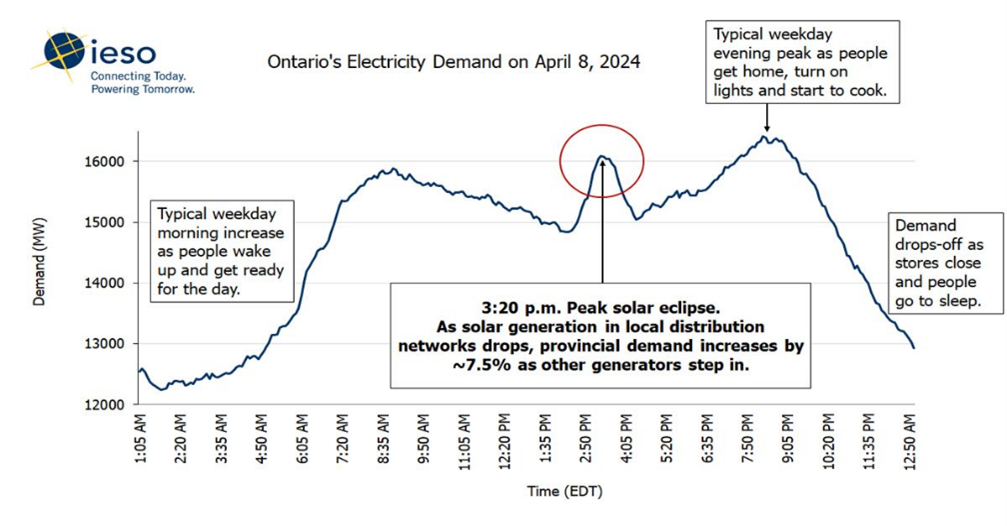On April 8th, 2024, Toronto was able to witness a rare solar eclipse, drawing attention from enthusiasts and curious onlookers alike.
This event, known as a total solar eclipse, occurs when the moon passes directly between the Earth and the Sun, casting a shadow over the Earth. This event certainly piqued the interest of many, presenting an opportunity to open discussions on how our energy systems function and respond to extraordinary circumstances.
The solar eclipse not only provided a celestial spectacle but also had tangible effects on our electricity grid. During the eclipse, there was a significant change in electricity demand, with solar generation output dropping by about 1,600 MW (distribution and transmission-connected solar). This decrease in solar output highlights the importance of diverse energy sources and the challenges associated with relying heavily on solar energy.
Although rare, events like the eclipse demonstrated a need for grid resilience and flexibility, integrate diverse energy sources, enhance energy storage solutions, and initiate long-term planning. The IESO's update on the event highlighted that 1,600 MW represents a scenario where a significant proportion of Ontario’s solar generation capacity is temporarily offline due to the eclipse.
Education and awareness remain paramount to understand the importance of energy resilience and the role that each individual and business can play in achieving it. By increasing public knowledge of how energy systems work, particularly the challenges associated with renewable energy integration, we can foster a more informed populace that supports necessary investments and innovations in the energy sector.


